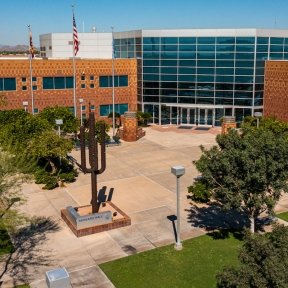Nurse Anesthesia Practice Completion Program
The Doctor of Nurse Anesthesia Completion Program builds upon your solid educational foundation as a Certified Registered Nurse Anesthetist. You will acquire new advanced knowledge that will help you qualify for leadership positions in nurse anesthesia.


Online
College Doctor, Nurse Anesthesia Practice Completion (AZ)
Duration1 Year Full-Time
Class Size Approximation30
The Midwestern Advantage
Midwestern University's investment in education, faculty, research, facilities, and clinical training translates into our students being "Day One Ready.”
The College of Health Sciences' Doctor of Nurse Anesthesia Completion Program builds upon your solid educational foundation as a Certified Registered Nurse Anesthetist. You will acquire new advanced knowledge that will help you qualify for leadership positions in nurse anesthesia and education in a patient-centered practice.
View program details in our Academic Catalog*
*Subject to change
According to the American Association of Nurse Anesthetists (AANA):
- Certified Registered Nurse Anesthetists (CRNAs) practice in every setting where anesthesia is delivered: traditional hospital surgical suites and obstetrical delivery rooms; critical access hospitals; ambulatory surgical centers; offices of dentists, podiatrists, ophthalmologists, plastic surgeons, and pain management specialists; the U.S. military, public health services, and Department of Veterans Affairs healthcare facilities.
- Nurse anesthetists first provided anesthesia on the battlefields of the American Civil War and have been the main providers of anesthesia care to U.S. military men and women on the front lines since WWI; today, CRNAs continue to be the primary providers of anesthesia care to U.S. military personnel on front lines, navy ships, and aircraft evacuation teams around the globe.
- CRNAs are the primary anesthesia providers in rural America, inner cities, and other underserved areas, allowing obstetrical, surgical, and trauma stabilization services to be offered to patients in these locations.
- Each year, CRNAs administer approximately 30 million anesthetics to patients in the United States.
- As with the overall need for nurses to provide care for an expanding and aging population, the demand for nurse anesthetists is expected to remain strong.
If you are interested in pursuing advanced nursing knowledge or specialization; are caring, sympathetic, responsible, and detail oriented; able to direct or supervise others; can correctly assess patients' conditions and determine when consultation is required; able to work as a member of the healthcare team; possess the emotional stability to cope with human suffering, emergencies, and other stresses, a career as a nurse anesthetist may be just right for you.
At Midwestern University, we prioritize research to advance knowledge and offer students enhanced learning opportunities, fostering close collaboration with faculty researchers and peers on innovative projects.
Academic Course Catalog
Explore comprehensive details about our academic programs (subject to change).
Career Placement & Salaries
*Median Salary (2024) Bureau of Labor Statistics, U.S. Department of Labor, Occupational Outlook Handbook, Nurse Anesthetists
**Median Salary American Association of Nurse Anesthesiology, 2025 CRNA Compensation & Benefits Study
Campus Options


Glendale
Located just 15 minutes from downtown Phoenix. Students can study and live on our sprawling 143-acre campus and practice at our University-owned clinics located just across the street.
